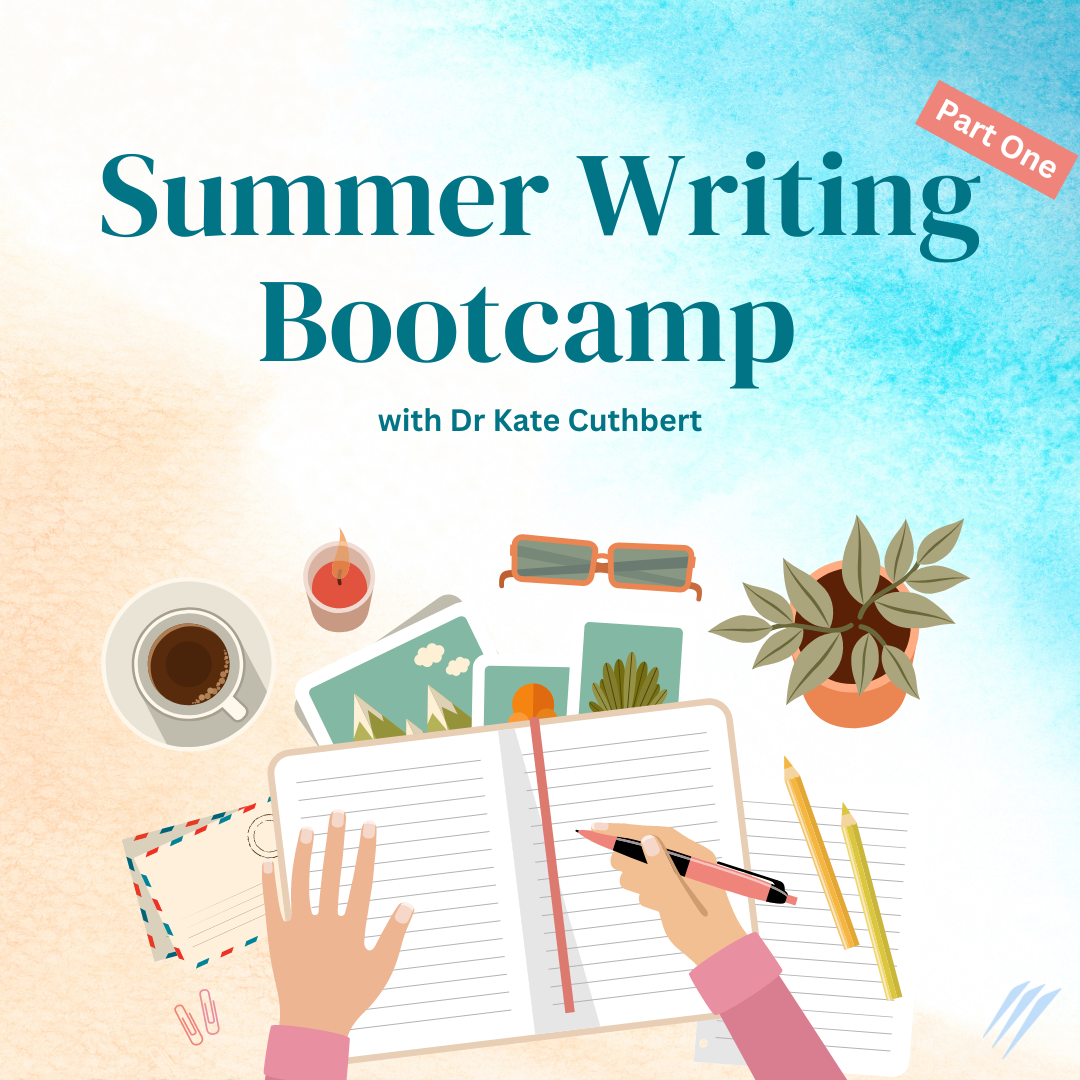
Summer writing bootcamp: adjectives
Pantera Press

Want to write your novel in 2024? Get started with some tips from Pantera Press editorial director, Dr. Kate Cuthbert. Check back in over the next few weeks for new instalments!
5 Things to know about using Adjectives
Most people, if they’ve learned about adjectives at all, will define adjectives as descriptive words. This is true, but it’s also very limited: adjectives can brighten your work, bring your settings to life, and enhance your characters and plot. But adjectives can also make your sentences unwieldy, your paragraphs dense, and your work boggy and plodding. In order to make your adjectives work for you, here are five things to know about using adjectives.
- Be specific
The blue sky stretched overhead. The cerulean sky stretched overhead. The cobalt sky stretched overhead. The indigo sky stretched overhead. Technically, these sentences say the same thing, but the slight variations in meaning of ‘blue’ in each add an extra dimension and provide extra information to the reader. A cerulean sky, for example, is clear, light, likely middle of the day, likely summer. A cobalt sky is more opaque, potentially heralding a storm. And an indigo sky suggests the slow slide towards dusk or the slow rise of the dawn, usefully providing a timestamp for your scene. - Are you stacking?
Her long, brown, curly, neat hair. Her chocolate curls fell neatly to her waist.
One adjective is good, so two must be better, right? Unfortunately, it’s not that easy. A well-placed adjective can immediately create the right image in your work, but the more adjectives you stack together, the less clear the image, and the more weighed-down your sentence becomes. Better to rework your sentence to avoid lengthy adverbial chains and spice up your description.
- Watch out for superlatives
She was the best fighter pilot. He wore the tightest shirt.
Superlatives are adjectives taken to their highest power: the most, the best, the ür adjective. While these kinds of adjectives are used frequently in informal settings like in speech or on social media, they can add a level of informality and satire to your descriptive work that you may not want. However, they can be very useful for character dialogue or deep point-of-view when building or using a character voice. Being able to identify superlatives will help you use them to their best effect.
- Avoid nothing words
Beautiful. Funny.
Empty adjectives are either adjectives that have become so over-used as to have lost all meaning or adjectives that are so subjective that they cannot be judged to be true. For example, you might find puns very clever and very humorous, but to someone who dislikes wordplay, a punner would be incredibly tedious. Beauty is in the eye of the beholder, and what one person finds attractive might be neutral to someone else. Much like the first point, good writing is specific writing, and these empty adjectives do nothing but bloat your word count.
- Watch out for slang/trendy words
Groovy. Rad.
English is a living language and words evolve and develop new meanings constantly. This is especially true for interjections and slang, which can evolve and the devolve incredibly quickly. Adding in time-appropriate trendy words can help situate your book in a specific place and time, but using contemporary slang in a manuscript can date your story unnecessarily and make it feel old and out of touch. Further, many of these words fall into the ‘empty’ adjective category as well, being undefinable and non-specific. So unless you have a solid reason for using slang, it’s best to keep to well-understood adjectives that best convey your meaning!
